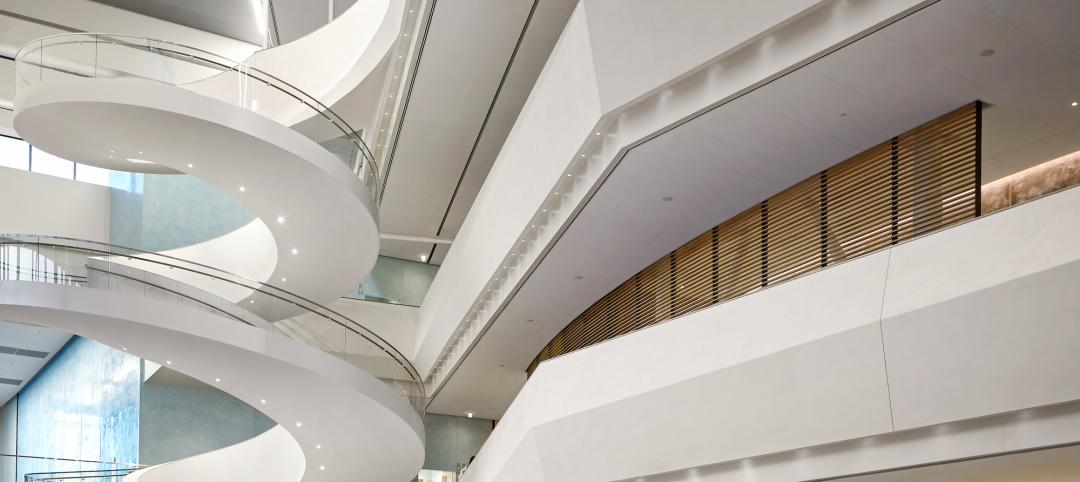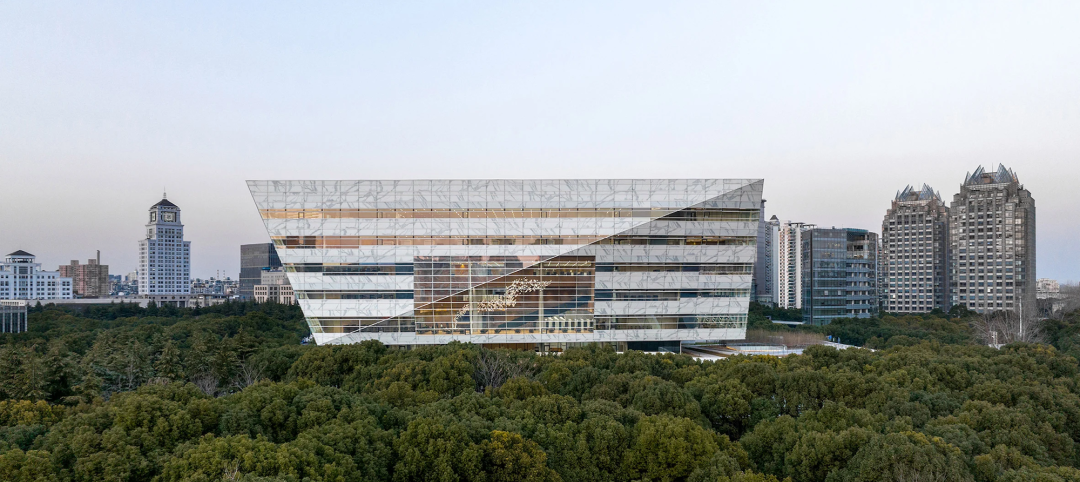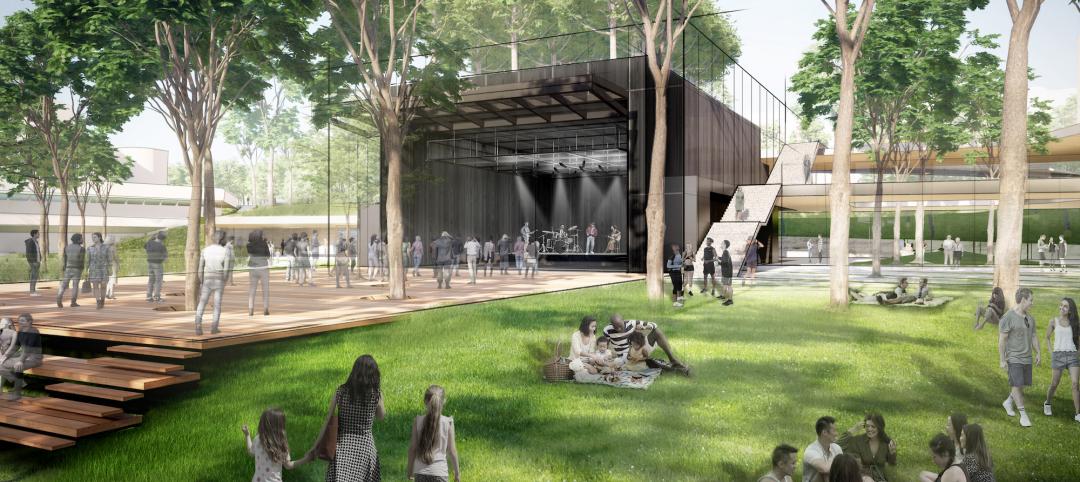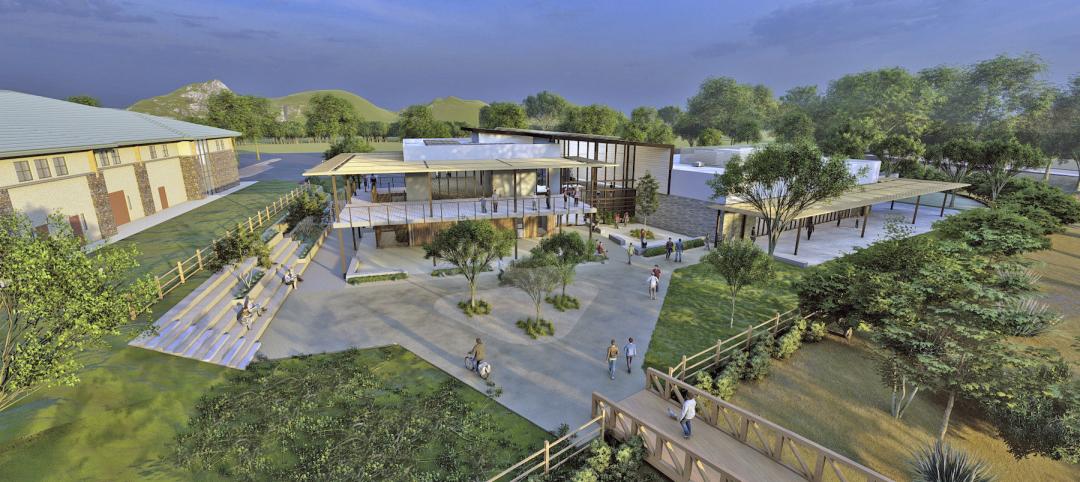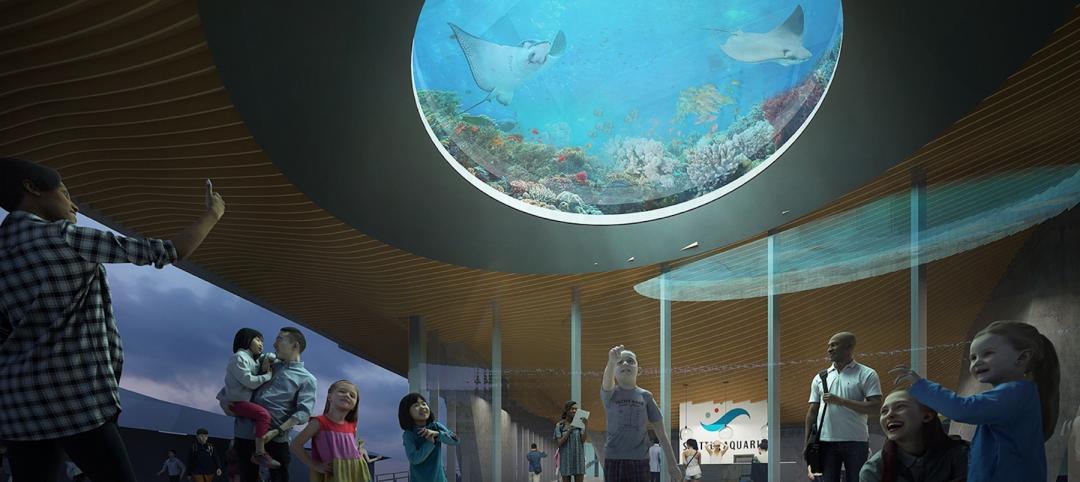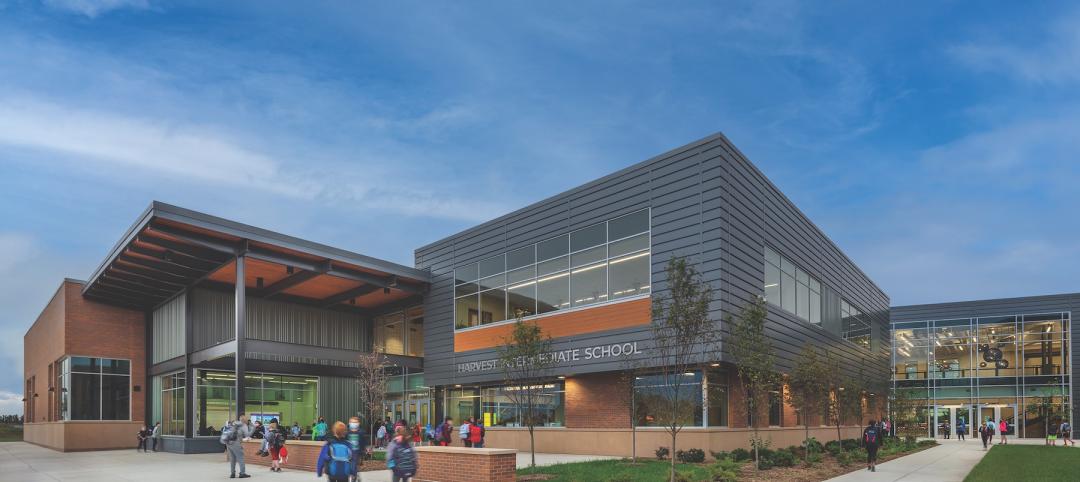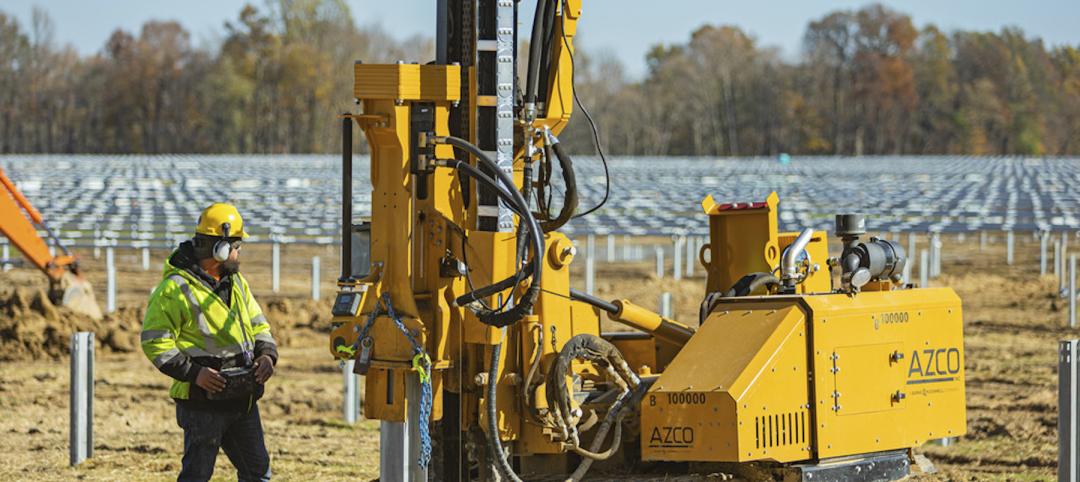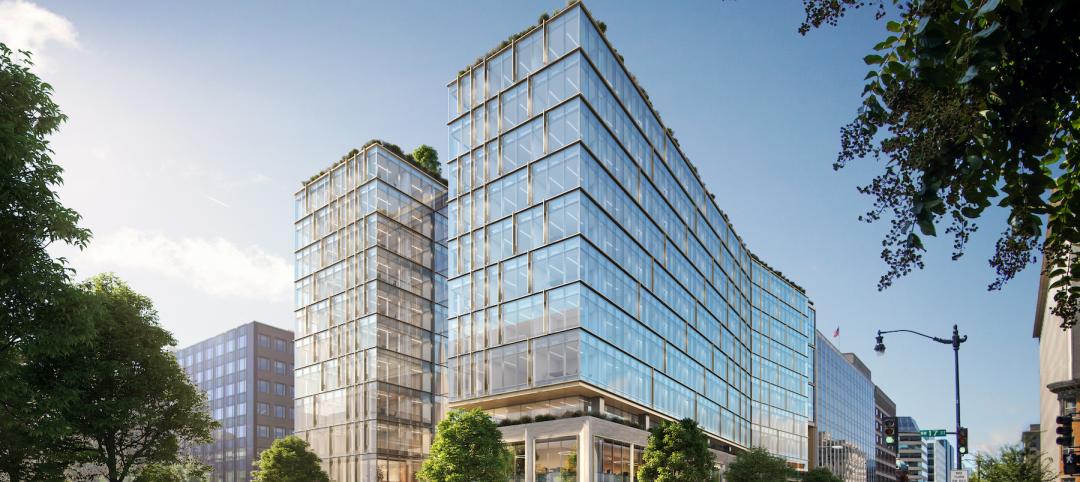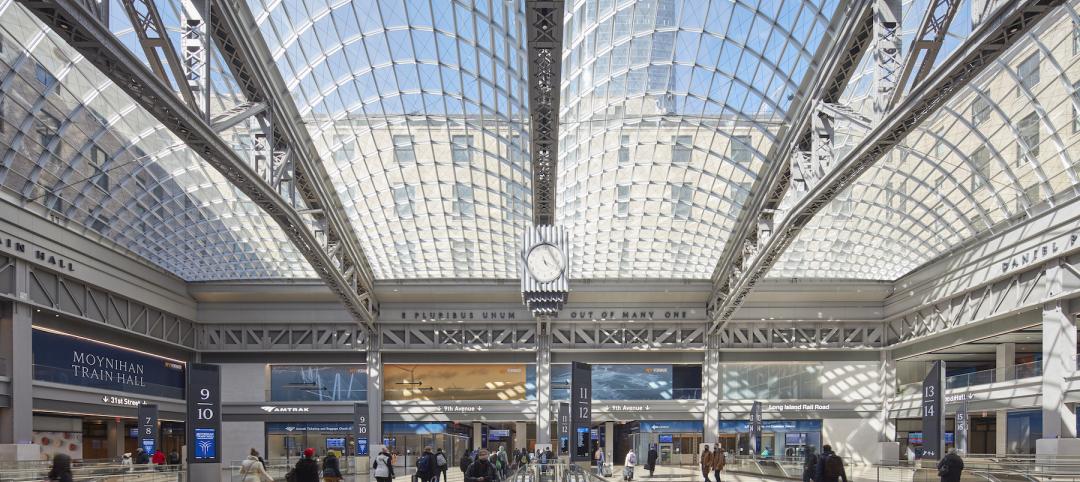The history of the Bay Theater in Pacific Palisades, Calif., could be seen as symbolic of the movie theater business’ past, present, and possible future.
Originally opened in 1948, The Bay has been closed since 1978, when it was converted to a hardware store. But over the past three years, Cinepolis USA and the shopping center developer Caruso Affiliated have been working with the design firm Retail Design Collaborative to bring this theater back to life through a major renovation that will feature five screening rooms, each with 40 to 60 reclining seats, reserved seating, a video wall, and call buttons for food and beverage wait service.
The theater, when it reopens as Bay Theater by Cinepolis Luxury Theaters on September 22, will include one remnant of its former glory: its original marquee, designed by S. Charles Lee. Curbed reports that the theater restoration is part of a larger downtown revival called Palisades Village that Caruso—which built The Grove in Los Angeles—is spearheading, and will include a park, restaurants, offices, eight residential units, plus a specialty grocery store, community room, and bank.
It’s news any time a new movie theater opens. The number of indoor movie screens in the U.S. has been pretty stagnant lately, hovering between 39,400 and 40,000 over the past four years, according to the National Association of Theater Owners. The opening in July of a 14-screen, 68,380-sf CMX Theater in Tallahassee, Fla., was the first new theater in that market since 1996.
Movie theater audiences have been shrinking in this era of streaming video. But those audiences are still mostly young. While 25- to 39-year-olds account for nearly one quarter of ticket sales, the 18- to 24-year-old cohort represents a disproportionate segment of ticket buyers (16%) compared to its portion of the U.S. population (10%), according to the Motion Picture Association of America (MPAA). Children ages 2 through 17 make up another 24% of ticket buyers.
Younger movie goers are presumed to be tech savvier, so it’s hardly surprising that owner operators and developers—as they reposition theaters based on demographics and location—are turning to technology to enhance the movie-going experience, like 4K digital projection onto gigantic screens, and sonic sound in screening rooms.
But audiences are also looking for more than just sensation. “Now, what’s wanted is more of an intimate experience,” says Mitra Esfandiari, AIA, Senior Principal with Long Beach, Calif.-based Retail Design Collaborative, which has been designing cinemas for 25 years. Theater design, she says, is more hospitality focused, with better finishes, “iconic” lobbies, interesting and comfortable furniture and lighting, and a bar component.
She points out that while ticket sales in the U.S. are down (last year ‘s 1.239 million tickets sold was its lowest level in 25 years, according to Box Office Mojo), total revenues are actually up because theaters are getting better at monetizing assets like food and beverage. “People are social animals, but they are picky. They want high-quality food,” says Esfandiari, noting that one operator she spoke with recently changed its menu to a more artisanal offering.
And while reclining seats significantly reduce a screening room’s capacity, Esfandiari says that theaters have been able to charge more per seat.
(AMC Entertainment Holdings, the world’s largest movie exhibitor with more than 1,000 theaters and 11,000 screens, reported on August 2 that its total revenue for the six months ending June 30 rose 13.8% to $2.86 billion; food and beverage alone contributed $856 million to that total, and was up 10.4%.)
FILLING DIFFERENT SPACES
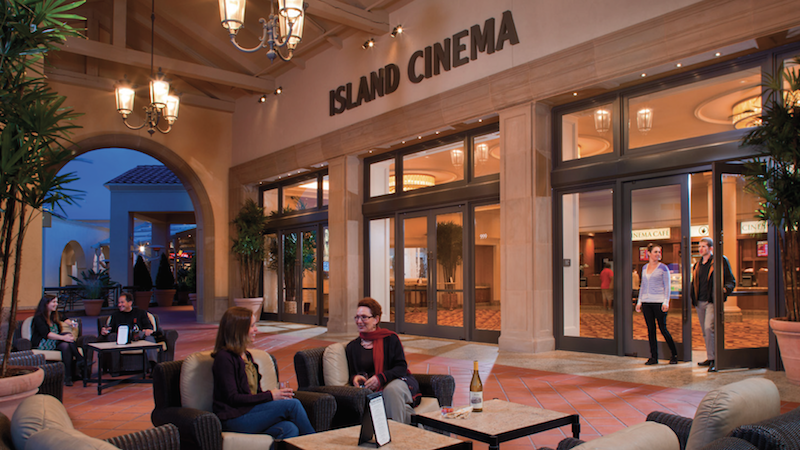
The seven-screen Island Cinemas in Newport Beach, Calif., features a lobby with granite coutertops, Tuscan stone columns, and panelized Alder wood treatments. Its concession area offers an array of gourmet menu items, as well as domestic and imported beer, wine, and champagne. Image: Retail Design Collaborative.
The Bay is one of the smaller theaters that Retail Design Collaborative has worked on lately. But on the whole, theaters have been getting smaller, to an average of around 30,000 sf, versus 70,000 sf in previous decades, says Esfandiari. One of her firm’s clients is Maya Cinemas, which specializes in building theaters for an urban footprint in underserved Latino markets. (Hispanics account for 21% of annual ticket sales, according to MPAA statistics.)
Esfandiari points out that, with so many retail stores closing around the country, theaters are becoming “good solutions” to fill those empty boxes. Her firm, in fact, has been working with landlords and developers that want theaters as anchors for their lifestyle centers.
Movie theater operators seem open to anything that will put more fannies in seats, and that, for some, includes booking gaming events, which have become wildly popular in some cities, on slower weekday nights. “You can serve food and drinks at these, too,” says Esfandiari.
Related Stories
Giants 400 | Feb 1, 2023
2022 Cultural Facilities Giants: Top architecture, engineering, and construction firms in the U.S. cultural facilities sector
Populous, DLR Group, KPFF, Arup, and Turner Construction head BD+C's rankings of the nation's largest cultural facilities sector architecture, engineering, and construction firms, as reported in the 2022 Giants 400 Report. Building types include museums, public libraries, performing arts centers, and concert venues.
Libraries | Jan 13, 2023
One of the world’s largest new libraries opens in Shanghai
Designed by Schmidt Hammer Lassen Architects, Shanghai Library East covers more than 1.2 million sf, 80% of it dedicated to community activity.
Performing Arts Centers | Dec 23, 2022
Diller Scofidio + Renfro's renovation of Dallas theater to be ‘faithful reinterpretation’ of Frank Lloyd Wright design
Diller Scofidio + Renfro recently presented plans to restore the Kalita Humphreys Theater at the Dallas Theater Center (DTC) in Dallas. Originally designed by Frank Lloyd Wright, this theater is the only freestanding theater in Wright’s body of work.
Sports and Recreational Facilities | Dec 15, 2022
Community centers reinforce a town or city’s sense of place
The intersection of a community with its natural surroundings is one key to a successful design of community centers, according to a new 24-page paper titled “Creating a Wellness Culture,” about the benefits of this building type, cowritten by HMC Architects’ Civic Practice Leader Kyle Peterson, and Director of Design James Krueger, who used three of their firm’s recent projects to buttress their thesis.
Museums | Oct 25, 2022
Seattle Aquarium’s new Ocean Pavilion emphasizes human connection to oceans
Seattle Aquarium’s new Ocean Pavilion, currently under construction, features several exhibits that examine the human connection with the Earth’s oceans.
Giants 400 | Aug 22, 2022
Top 90 Construction Management Firms for 2022
CBRE, Alfa Tech, Jacobs, and Hill International head the rankings of the nation's largest construction management (as agent) and program/project management firms for nonresidential and multifamily buildings work, as reported in Building Design+Construction's 2022 Giants 400 Report.
Giants 400 | Aug 22, 2022
Top 200 Contractors for 2022
Turner Construction, STO Building Group, Whiting-Turner, and DPR Construction top the ranking of the nation's largest general contractors, CM at risk firms, and design-builders for nonresidential buildings and multifamily buildings work, as reported in Building Design+Construction's 2022 Giants 400 Report.
Giants 400 | Aug 22, 2022
Top 45 Engineering Architecture Firms for 2022
Jacobs, AECOM, WSP, and Burns & McDonnell top the rankings of the nation's largest engineering architecture (EA) firms for nonresidential buildings and multifamily buildings work, as reported in Building Design+Construction's 2022 Giants 400 Report.
Giants 400 | Aug 22, 2022
Top 80 Engineering Firms for 2022
Kimley-Horn, Tetra Tech, Langan, and NV5 head the rankings of the nation's largest engineering firms for nonresidential buildings and multifamily buildings work, as reported in Building Design+Construction's 2022 Giants 400 Report.
Giants 400 | Aug 21, 2022
Top 110 Architecture/Engineering Firms for 2022
Stantec, HDR, HOK, and Skidmore, Owings & Merrill top the rankings of the nation's largest architecture engineering (AE) firms for nonresidential and multifamily buildings work, as reported in Building Design+Construction's 2022 Giants 400 Report.



